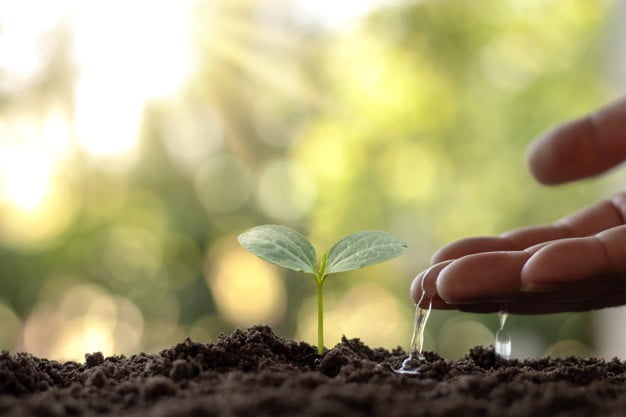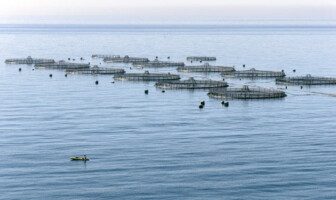
The Garden is one of the most important places in your home. It is the first impression any visitor takes of your home when they enter. Your garden is also essential as it ensures cleaner air and environment for your home and family. You can also organize your garden to grow vegetables that may not be available in your area.
With the advancement in technology, smart products have become extremely popular in the market. You can use smart products to increase the appeal of your garden, and make it easier to maintain. You can look up Energy Smart Products at First Energy.
Gardening can be a good pastime.
However, we should be vigilant that our hobbies should not be destructive to the environment. In fact, we should ensure that we are minimalizing our carbon footprint and integrating eco-friendly practices.
Similarly, you can include eco-friendly practices while gardening. Here is how you can do that:
Composting:

Composting is a convenient and popular practice while gardening.
Composting means turning leaves and leftovers into fertilizer that helps plants grow. It also allows you to use waste and scraps in your home and reduces methane emissions from landfills.
Other benefits include reduced soil erosion, improved soil health, and water conservation.
Keep the Seeds:
Seeds are an asset as they keep your garden healthy. When your flowers and vegetables start withering away they will produce seeds.
Make sure you collect these seeds and store them properly in a suitable environment. Later, in the spring season, you can use these seeds for more plantations. It is easier to save tomatoes, peas, beans, and pepper seeds.
Do Not Use Herbicides:
Herbicides are extremely toxic to the environment. Instead of using herbicides, you should try to use organic methods to keep pests away and prevent weeds from growing in your garden. You can remove weeds manually. It can be a good exercise that keeps you busy for the rest of the day.
The best part is your garden becomes even healthier and greener.
Mulching:

Mulching is a method in which you can spread organic material on the soil to protect roots from harsh weather conditions and provide nutrients to the plant as the organic matter decomposes.
Types of organic mulch include grass clippings, sawdust, hardwood bark, pine needles, hardwood chips, composted leaf litter, animal manure, etc.
Applying mulch is also not a technical or time-consuming process. It provides an insulation layer, conserves soil moisture, improves soil’s physical structure and fertility, prevents erosion and water runoff, and reduces root competition.
Use an Electric or Manual Lawn Mower:
A gas-powered lawnmower can be disastrous to the environment and increase your carbon footprint. You can replace a gas-powered land mower with a manual one or an electric one.
A manual mower is also a healthier choice. According to the Environmental Protection Agency, using a gas-powered lawnmower instead of an electric or manual one for just one hour causes air pollution equal to driving a car for 45 miles.
Increase Trees in Your Garden:

Trees are a great way to reduce your carbon footprint. Trees capture carbon from the atmosphere and store them in the soil.
However, you should be careful that the space you have assigned for trees is such that it does not damage your property. You can easily manage and take care of trees.
However, if they cause trouble you may contact relevant authorities to help you out.
Save Water:
Water is a precious resource. It is essential for living plants as much as it is essential for human beings.
However, it is not necessary to wastewater while taking care of your plants. Saving water is not only good for the environment, but it is also a great way to cut down on your utility bills. You can use water barrels or develop rain gardens. You should also consider using natural sources of water like rainwater or river.
Use Sustainable Fertilizers:
Sustainable fertilizers are important for an eco-friendly garden. Harmful fertilizers may seep into the nearby water channels and affect marine life or contaminate a source of water that is drinkable for many. You could obtain natural fertilizer if you have livestock, or you could contact local farmers who may have some for you to purchase.
Manure is a great fertilizer to keep your plants healthy, green, and well-nourished.
Plants with More Tolerance and Less Water Consumption:
A good way to save valuable resources while maintaining a spectacular garden is to plant plants that have a higher tolerance and thus need less care and maintenance. These plants include honeybush or Monterey cypress. These plants are a good addition to a lovely, eco-friendly garden.
Use Useful Insects to Prevent Pests:
Helpful insects are nature’s gifts to control pests without using detrimental substances. These insects eat caterpillars, mites, aphids, and other bugs that eat greens, and the most amazing part is that they are pretty harmless to pets and people.
An example is ladybugs. Not only are they adorable but they also love to have aphids!
In Conclusion:
Maintaining an eco-friendly garden is extremely easy if you take care of a few things. However, at the same time, it is also a huge responsibility. You have to take proper care and ensure that your plants are healthy and green.
You should take sustainable measures and not pollute your environment.




























